The Hwange Women
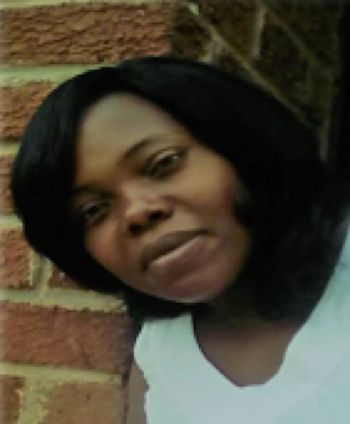
Summary: The Hwange Colliery Company Limited (HCCL), a Zimbabwe coal-mining company, has not paid its workers for years, sending many families into deep poverty. Spouses and widows of HCCL workers, as well as former workers themselves, have banded together to protest. They have set up a camp outside HCCL offices, demanding back-payments of salaries.The women have encountered harassment and threats—similar to a protest five years earlier, in which people were arrested and injured—but they continue their demonstrations.
Profile: Let’s first introduce the villain of this Giraffe Heroes story. The Hwange Colliery Company Limited—HCCL—is a coal-mining company headquartered in Harare, Zimbabwe but operating about 700 kilometers west of Harare. Its majority shareholder is the government of Zimbabwe. According to its website, HCCL “explores, mines, processes, and markets coal, coke, and associated by-products.” Not only that, but the colliery claims to have “a strong Corporate Social Responsibility background . . . substantially contributing to community empowerment.”
There’s a problem with how HCCL runs its business, however: Since 2013, despite continual production, it has not been paying its workers; the unpaid salaries now average US $10,000 per worker. As a result, these workers and their families are barely surviving. One example: Wife and mother Thobekile Shoko said, “Women in Hwange are now engaging in prostitution to try and support their families. There are high rates of divorce, and this affects our children.”
What to do? This is where we meet the Giraffe Heroes—the women of the town of Hwange—spouses of HCCL workers, widows of former workers, and former workers themselves.It started with Claris Ngoma, who worked for HCCL for 12 years and is owed $18,000. One day, the distraught son of Ngoma’s neighbor asked her to come by their house and see to his mother, who was sick and starving. Ngoma’s neighbor, like many others, could have bought food had HCCL been paying her family.
Ngoma was upset, of course, and even more upset when she found several other women in similar predicaments. The current situation was untenable, and they needed a solution. After discussions, Ngoma boldly asked them, “What if we hold a demonstration?”
Initially, this did not go over well. Five years previously, a group of women demonstrated against HCCL and were brutally attacked by Zimbabwe police officers; several women sustained injuries. “They were clearly shocked at my suggestion,” said Ngoma, “but as much as I had surprised even myself, the more I thought about it, the more I realized it was absolutely necessary to protest the unfair treatment of workers by HCCL. So I pressed on.”
Press on she did, and she recruited more women. On January 29, 2018, dozens of women began camping out in tents at the entrance fo HCCL offices, vowing not to leave until their families were given their rightful dues—at least an average of $10,000 of the money owed to each worker. “I know HCCL and how it operates,” says Ngoma. “It is a very exploitative company and in spite of reaching and at times exceeding its targets of production, it has continued to deny workers their money. We are demanding that the government intervene and bring an end to the suffering people in Hwange are going through because of HCCL.”
In order to prevent a repeat of the police violence that had happened before, the women drafted a petition with a list of their demands and delivered it to the Hwange police. This time, it worked. The police did not attack the demonstrators.
Meanwhile, Thobekile Shiko became the spokesperson for the group; this was not easy. She was grilled by police for over four hours about the demonstration; she has been castigated by HCCL management and politicians. Not only that, but “Being the women’s spokesperson has meant reporting to the tent on a daily basis, which has not been easy because I live 20 km from where we are camped. When I can afford it, I take a lift, but most times I travel on foot.”
Other women, Giraffe Heroes all, have joined the protest under severe circumstances. Shiela Ndlovu was infuriated when her husband—who has been employed by HCCL for 21 years—told her that he wouldn’t be paid, though he was still required to report for work. “I have three children,” says Ndlovu, “all of them of school-going age. They need food, they need school fees, and they need clothes, among other things. . . . I knew if my family’s situation got any worse than it already is, we would surely die. That is why I was ready to lay my life on the line by being a big part of the demonstration; I did it for my children.”
“Laying my life on the line” is not an exaggeration. Many of the women have been threatened with their houses being burnt to the ground. Some, like Chipo Tazvavinga, started receiving phone calls from unknown numbers all through the night, asking her to report to the police station; she was finally compelled to switch off her cell phone. The protesting women’s husbands have also been threatened with dismissal from work. Florence Ndlovu’s husband has worked for HCCL for 18 years and is owed $11,000. She has four children of her own and a nine-year-old grandson left in her care. At work, her husband was told to “rein her in” or he would be in trouble.
In addition to protesting, the women of Hwange have taken on other jobs in order to support their families. Muchaneta Shumba started buying and selling meats, but she has to travel on foot for long distances in order to do it. Tendai Sithole’s husband is owed $15,000 by HCCL, and she has had menial jobs such as washing, cleaning, and making bricks. “I know that my family and I should not be living such a pitiful life,” she says, “especially as my husband has reported for duty at HCCL religiously since he was employed in 2004.” She wonders, “Where is the money from selling all that coal going to?”
The suffering is palpable. Kwendani Milazi’s daughter couldn’t afford to continue her education; she now spends her days wandering aimlessly in the village while her peers are in school. Like others, Milazi is infuriated with HCCL: “I never imagined that Hwange Collier Company Limited would turn into such a monster that exploits its workers without paying them.” Whatever the dangers in protesting, she feels that it’s worth it: “I knew I was putting myself in the line of fire, but I did not care anymore. What could be worse than the suffering my family and I have already gone through?”
The hardships can be life-threatening. Bridget Nyoni, a 27-year-old with a heart condition, now has no money to get the appropriate medical care. Her husband is owed $8,000, and, despite fainting periodically, she regularly joins the protests: “I have nothing to lose. It is better to die here fighting for what’s ours than spending my days in bed.”
The camping continues, despite harsh weather—heavy rains, harsh winds, and heat waves. HCCL has admitted that it owes its workers $70 million, but claims that it doesn’t have the money to pay it—this despite the fact that managers have continued to enjoy high salaries and murky accounting continues to obscure the income paid to investors. The women of Hwange have engaged some allies, including the Zimbabwe Congress of Trade Unions, the Centre for Natural Resource Governance, Zimbabwe Lawyers for Human Rights, and Women and Law in Southern Africa.
HCCL has somewhat succumbed to pressure. A “Scheme of Agreement” had been reached in 2015, but HCCL reneged on it. Now, however, it seems to be working on renewing that agreement. The courts and the Zimbabwe government have not taken an explicit side on the matter, but lately they seem to be leaning toward the women. The women, of course, have taken on this sacrifice to protect their husbands and to support their families.
The issues now go beyond beyond the salaries and benefits. Their demonstrations present the women of Hwange with the perfect opportunity to also demand wholesome changes to the entire town. And their demands are clear, says Claris Ngoma: “Even though Hwange is rich in resources and is a place where a lot of money that funds the government comes from, the area resembles a ghost town. There is no development taking place here and we need for that to change. We need libraries for our children, businesses that can employ people besides mining companies and we need to see people building their own houses. Considering the economic activity taking place here, we should certainly be able to do that and more.”
Perhaps the spirit of these heroic women is best expressed by Shiela Ndlovu: “I think being a part of this demonstration is one of the most important things I have ever done. It is a fight for my family, for all of HCCL workers, and the whole town of Hwange. Someone had to take a stand and do it, and I am happy that I was one of those that did.”
The Hwange Women

Claris Ngoma

Thobekile Shoko
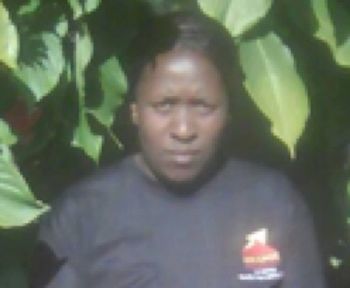
Shiela Ndlovu
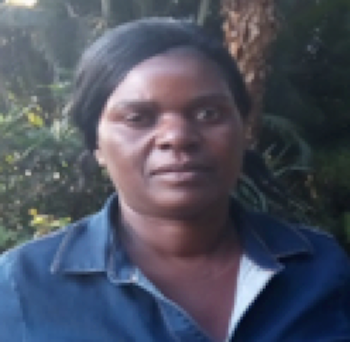
Florence Ndlovu
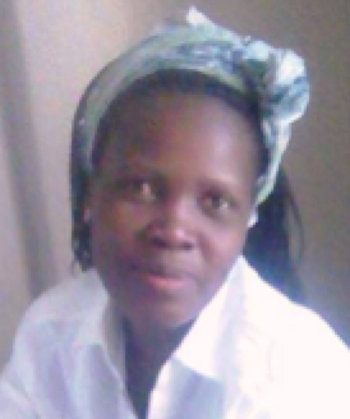
Tendai Sithole

Chipo Tazvivinga
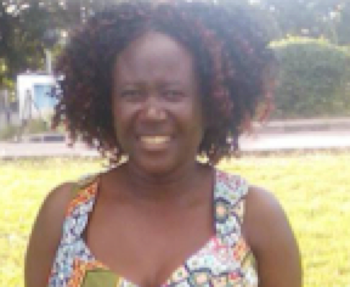
Kwendani Milazi

Bridget Nyoni

